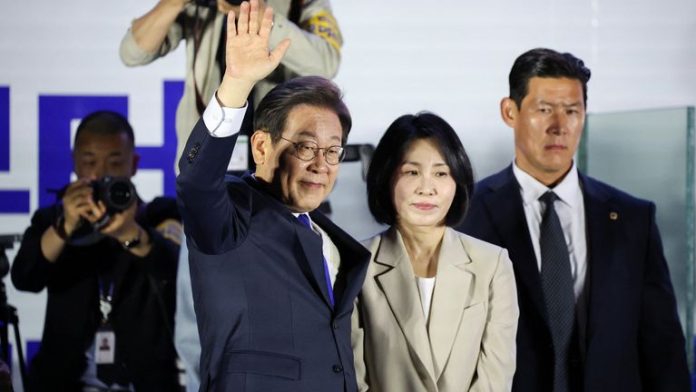Snap presidential elections were held in South Korea on Tuesday, announced after the impeachment of former President Yoon Suk Yeol, who made an unsuccessful attempt at a coup. According to the preliminary results, the candidate from the Democratic Party Lee Jae-myung won the election, Korean media reported.
Democratic Party candidate Lee Jae-myung won South Korea’s presidential election, with 90.2% of ballots counted. He received 48.43% of the vote, while his opponent Kim Moon-soo received 42.59%.
Kim Moon-soo, the candidate from the conservative People Power Party, has conceded victory to his opponent Lee.
The snap elections were held two months after the Constitutional Court (CC) upheld the impeachment of former President Yoon. On December 3, 2024, he attempted to impose martial law in the country, but the National Assembly overturned his decision and removed him from office.
Five candidates ran in the election. For the first time since 2007, there were no women among them. Kim Moon-soo, the candidate from the People Power Party and former labour minister, was Lee’s main rival. A Realmeter poll published last week showed Lee leading Kim 49.2% to 36.8%.
The South Korean president is elected for a single five-year term without the right to re-election. Lee has proposed constitutional amendments to reduce the term of office to four years with the possibility of re-election and to introduce a second round of elections. He also advocates limiting the presidential veto on laws related to the criminal prosecution of the head of state and his family, and requiring parliamentary approval within 24 hours for the imposition of martial law.
Lee compares himself to left-wing American politician Senator Bernie Sanders, but in recent years his views have shifted towards the centre and he has abandoned radical ideas such as universal basic income. In his election programme, Lee promised to revive the stock market, raise the KOSPI index to 5,000 points, protect the rights of minority shareholders and reform corporate governance.
In foreign policy, Lee advocates developing a military alliance with the US but suggests not rushing into an agreement on export tariffs (a rate of 25% has been set for South Korea). He also plans to restore the hotline with North Korea, which was suspended in 2023.
In 2022, Lee lost to Yoon in the election by the narrowest margin in the country’s history — 0.3%. The Democratic Party’s victory in the parliamentary elections led to a power struggle: Yoon vetoed a record number of bills, while the Democrat-controlled parliament rejected the president’s proposed annual budget and initiated impeachment proceedings against several members of his administration.
Five criminal cases have been brought against Lee on charges of corruption and other violations. On March 26, the Seoul Court of Appeal acquitted him of violating the election law (a lower court had previously sentenced the politician to one year in prison with a suspended sentence).
